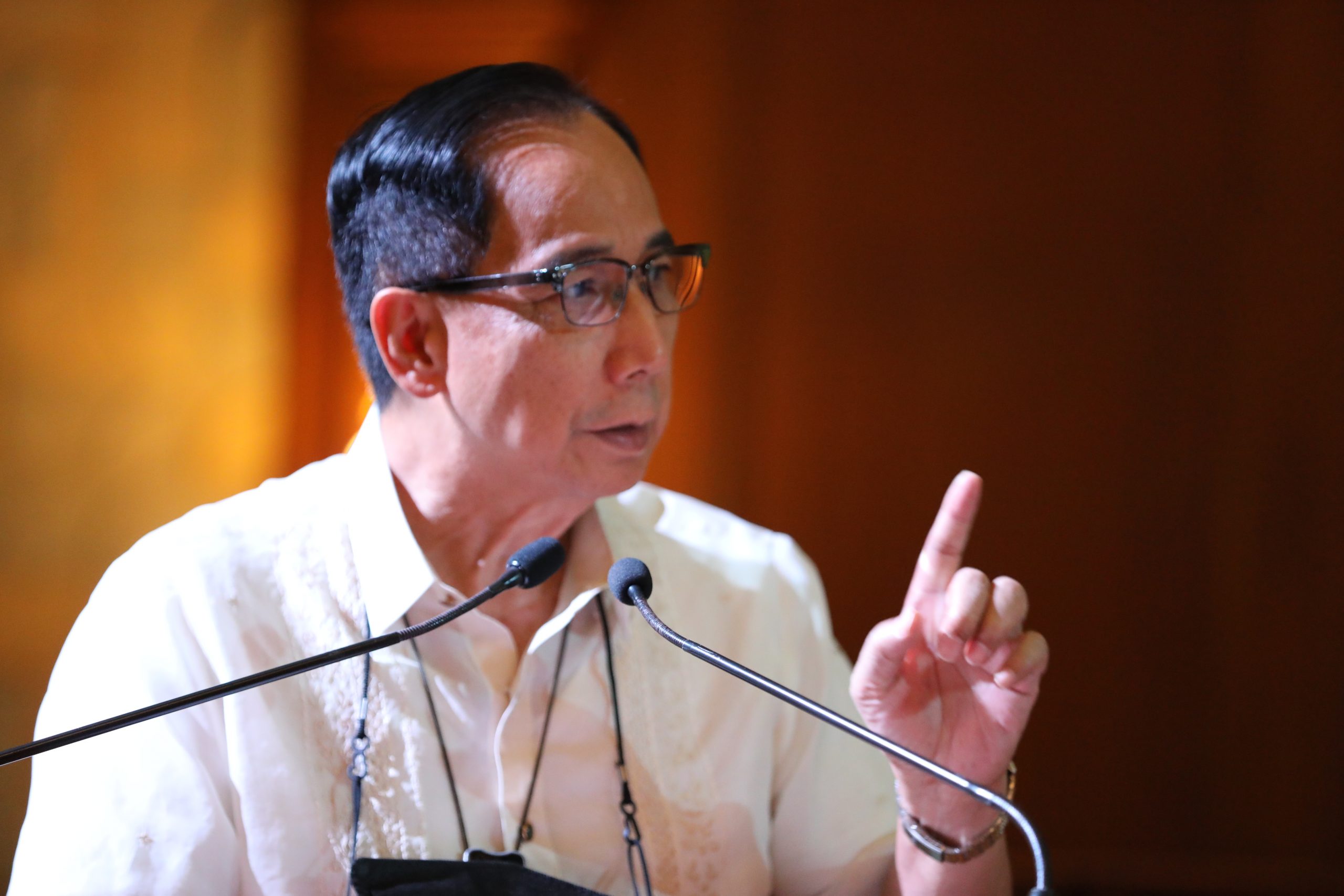
Capping the legacies of President Rodrigo Roa Duterte, the Department of Agriculture (DA) will further strengthen the delivery of extension services and provision of technical and marketing assistance, in partnership with the local government units (LGUs) and other stakeholders, as the “Mandanas-Garcia ruling” will be implemented starting in January 2022.
Agriculture Secretary William D. Dar said the “OneDA Family,” in the remaining months of President Duterte’s administration, will continue to work closely with the LGUs, state universities and colleges (SUC), the private sector, and farmers’ and fisherfolk’s organizations to ensure the smooth transition to the Province-led Agriculture and Fisheries Extension Systems (PAFES), and implementation of various initiatives under the government’s “Plant, Plant, Plant” program.
“PAFES would serve as the modality of implementing banner programs in the provinces. Under the system, we at the national government will do the steering while, the LGUs will do the rowing,” the DA chief said.
Agricultural extension and advisory services play a crucial role in boosting agricultural productivity and income, increasing food security, improving rural livelihood, and promoting agriculture as an engine of inclusive, pro-poor economic growth.
Through PAFES, Secretary Dar said that the “OneDA Family” will help boost the capabilities of provincial LGUs in implementing agri-fishery extension services, and integrating multiple programs of the Department — with the provinces as the hub of operations.
“We have to understand that agriculture is local. Agriculture is provincial. Therefore, the LGUs are in a much better position in identifying and supplying these services that would bring more progress to the countryside, and make the country food-secure and resilient,” he added.
Further, he said, “we will continue to push for the transformation of Philippine agriculture into a modernized and industrialized sector under the OneDA reform agenda, which we have been espousing since we took over in August 2019.”
The OneDA reform agenda is built on four pillars of consolidation, modernization, industrialization and professionalization — with corresponding 18 key strategies.
“We are bent on increasing farm and fishery productivity by showing and convincing our farmers and fishers to adopt modern and innovative technologies, as part of sustainable national food systems,” he said. “That’s why it is imperative for us to promote the OneDA agenda in tandem with the LGUs, SUCs, the private sector, and farmers’ and fishers’ groups.”
Confronting challenges head-on
Under his leadership and guidance of President Duterte, the Department has leveled up its game and recorded impactful changes despite the so-called “perfect storm” that has hit the country’s agri-fishery sector in 2019 and 2020.
Among the key achievements as part of President Duterte’s legacy last year include the record-high palay output of 19.4 million metric tons (MMT), historic 20-year high corn production of 6 MMT, removal of rice as a major driver of food inflation, and notable increases in the production of poultry, chicken and duck eggs.
In the first half of 2021, palay output has already reached 8.87 MMT, or six percent (%) higher than the 8.72 MMT, during the same period a year ago. With bulk of the full-year harvest coming from the wet-cropping season, the country is likely to achieve another record-high production of 20.4 MMT of palay this year.
For the livestock sector, production is expected to pick up, albeit slowly, in major hog producing areas previously affected by the African Swine Fever (ASF). In fact, six LGUs in Batangas were recently declared ASF-free, and thus can resume production under the Department’s hog repopulation program.
Also, high-value crops continue to post growth – with the banana sector recording the highest export volume of 4.4 MMT in 2019, and onion production hitting 90% sufficiency in 2020.
“These milestones, along with other effective and result-oriented programs and projects, will pave the way for us to attain a target growth of 2.5% and reshape Philippine agriculture into a modern and sustainable pillar of economic development,” he added.
For next year and beyond, he said “the potentials of the country’s agriculture and fishery sector could be further unleashed given appropriate budgetary support, and much-needed private sector investments, including those from the LGUs.”
“For 2022, we are proposing a budget of P250 billion, which is three times more than this year. We pray that the country’s agriculture sector could be afforded that long-delayed financial support so the Philippines could keep pace at least with our counterparts in the ASEAN region,” he concluded. ### (DA StratComms)














